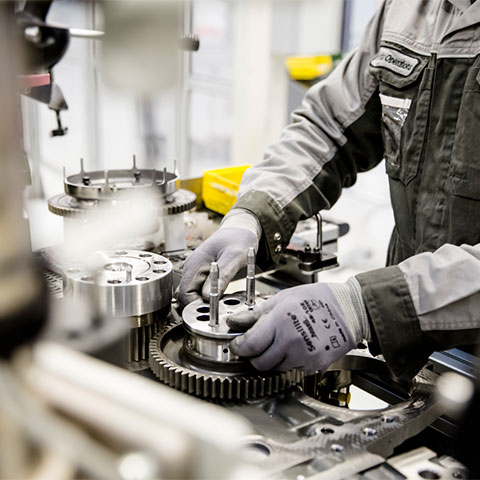In the first of such announcements from a European truck manufacturer Renault Trucks, part of the Volvo Group, has advised employees and the media of the additional steps that will be taken to ensure the safety of the workforce. Nor trucks have been made at the Renault plants in France since 18th March, a downtime of over a month.

These additional steps include disinfection of machinery, workstations and work tools, the wearing of masks, gloves and overalls, social distancing rules, organised movement in shared areas.
Parts and Servicing Uninterrupted
The closedown only affected the manufacture of new trucks, the parts and service businesses remained unaffected by the crisis, as it is seen as essential that trucks are kept on the road to deliver food and medicines.
Gradual Process
The first factory to open was the Lyon-Venissieux Engine Plant on April 22. Other Renault Trucks production sites, such as Bourg-en-Bresse and Blainville-sur-Orne assembly plants, should gradually resume their activity in the following weeks.
The restart of industrial activity is planned, for all plants, at a very low level. Ramp up will be slow and be spread over several weeks, in line with customer demands, the ability of suppliers to deliver the required components, and in synchronisation with the other Volvo group plants.
New Safety Measures
The industrial restart will be conditioned by the implementation of reinforced health protocols adapted to each site, in consultation with the trade unions and employee representatives. Drawn up by the company’s occupational physicians based on the precise route taken by employees, from the cloakroom to their workstation, the aim is to eliminate the risk of coming into contact with the virus.
Bruno Blin, President of Renault Trucks says:
We will only resume activities if health and safety conditions are exemplary – there will be no compromises. This is why we are envisaging a gradual restart, involving an initial period during which we will be testing the health protocols, as well as the supply chain and logistics, before considering a ramp-up.
Measures to be taken in Renault Trucks plants include:
- Applying social distancing rules and protective measures,
- Widespread use of alternative masks,
- Wearing FFP2 masks with goggles or visors and gloves when the one-metre distance cannot be respected,
- Keeping doors open (except fire doors) to prevent contact with handles,
- Cleaning of workstations, work tools, logistics equipment, changing rooms and canteens
- Organising movement in all common areas, changing rooms, corridors and canteens, extending the opening hours and limiting the number of people present at any given time,
- Introducing a special seating plan in transport shuttles to guarantee space between passengers.
Working from Home Preferred
For non-production related jobs, such as sales or research & development, Renault Trucks are asking staff to continue to work from home.
Now comes the complicated task of trying to work out how many trucks to build. Will there be pent up demand or will truck buyers be nervous of placing orders for new trucks?
